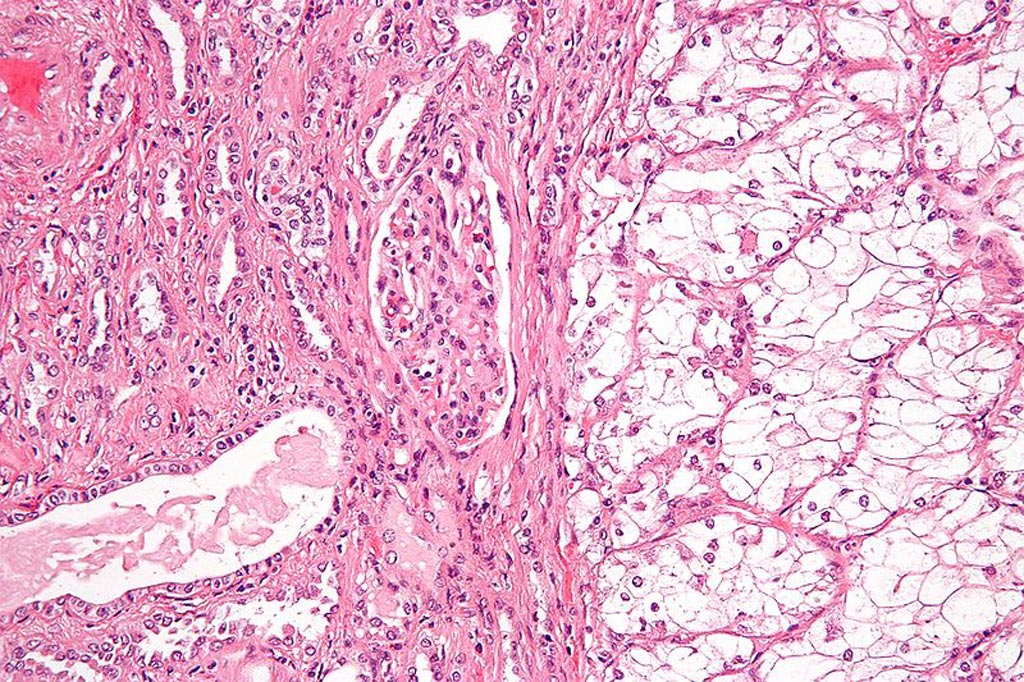Biomarker-Based Blood Test Developed for Early Cancer Diagnosis
By LabMedica International staff writers
Posted on 21 Aug 2018
A blood test for early detection of kidney cancer is based on the KIM-1 (Kidney-injury-molecule-1) protein biomarker.Posted on 21 Aug 2018
Renal cell carcinoma (RCC) has the potential for cure with surgery when diagnosed at an early stage. To this end, KIM-1 has been shown to be elevated in the plasma of RCC patients.

Image: A micrograph of the most common type of renal cell carcinoma (clear cell) on right of the image; non-tumor kidney is on the left of the image (Photo courtesy of Wikimedia Commons).
In the current study, investigators at Brigham and Women's Hospital (Boston, MA, USA) examined whether plasma KIM-1 could represent a means of detecting RCC prior to clinical diagnosis.
The investigators measured KIM-1 concentrations in samples from patients enrolled in the European Prospective Investigation into Cancer and nutrition (EPIC). KIM-1 levels from 190 participants who went on to develop RCC within the next five years were compared to those from 190 matched participants (same age, body mass index, smoking status, etc.) who remained healthy.
In samples with detectable levels of KIM-1, the average concentration was double in those who would develop kidney cancer. Furthermore, compared with a risk model including known risk factors of RCC (age, sex, country, body mass index, and tobacco smoking status), a risk model that additionally included KIM-1 substantially improved discrimination between cases and controls. In addition, high plasma KIM-1 concentrations were associated with poorer survival.
"Early detection of kidney cancer can be lifesaving. We can cure kidney cancer when we detect it at an early stage, but patients with advanced kidney cancer have a very high death rate," said contributing author Dr. Venkata Sabbisetti, a researcher in the renal division of Brigham and Women's Hospital. "However, kidney cancer is asymptomatic and many patients present with advanced kidney cancer at the time of diagnosis. Our results suggest that with further refinement, KIM-1 has the potential to identify patients with early, curable kidney cancer."
The KIM-1 study was published in the July 23, 2018, online edition of the journal Clinical Cancer Research.
Related Links:
Brigham and Women's Hospital














